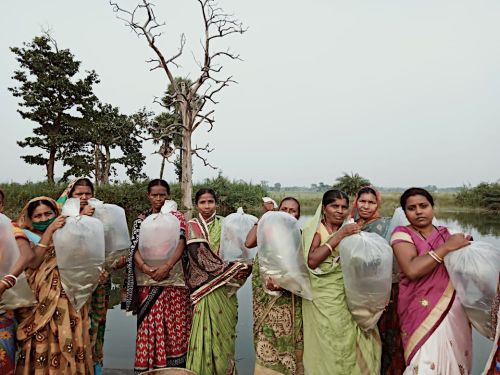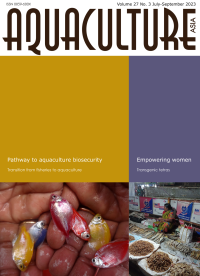Expanding the horizon of aquaculture through women's empowerment
3 August 2023 | Gora Shiva Prasad, Sangram Keshari Rout, Rajesh Debnath, Suchismita Prusty, Sutanu Karmakar, Dharma Raj Patro, and P. Sruthi | 800 Downloads | .pdf | 2.48 MB | Gender, India, Livelihoods, gender and social issues
The concept of “empowerment” was introduced at the International Women’s conference in 1985 at Nairobi, which defined empowerment as a “redistribution of social power and control of resources in favour of women”. In recent years the development of women has emphasised providing equal opportunities to women by removing gender bias, empowering, and creating self-reliance among them. Empowerment of women and gender equality is recognised globally as a key element to achieve progress in all areas. Globally, the role of women and the need to consider gender issues in aquaculture development was first recognised by the FAO-NORAD sponsored workshop on “Women in Aquaculture” in 1987.
All aquaculture labour practices should embrace the targets of Sustainable Development Goals (SDG) no. 5, Gender equality and empowerment of all women and girls, and no. 8, Decent work and economic growth. To reach the SDG targets, all aquaculture participants have responsibilities. Hence, gender equality must be mainstreamed into aquaculture planning, development, monitoring and evaluation, requiring political action by sector leaders, advocates and gender champions, and supported by new technical instruments for implementation.
This article discusses the need and opportunties for women's empowerment and greater inclusion in aquaculture and allied industries at every level.
Creative Commons Attribution.

